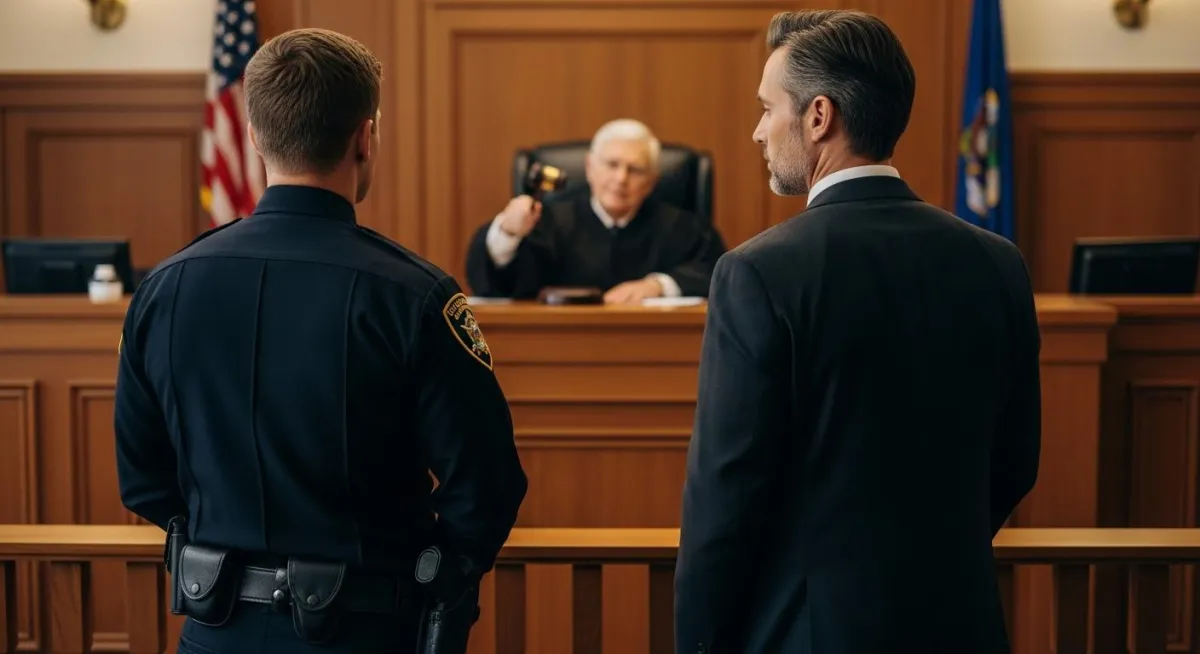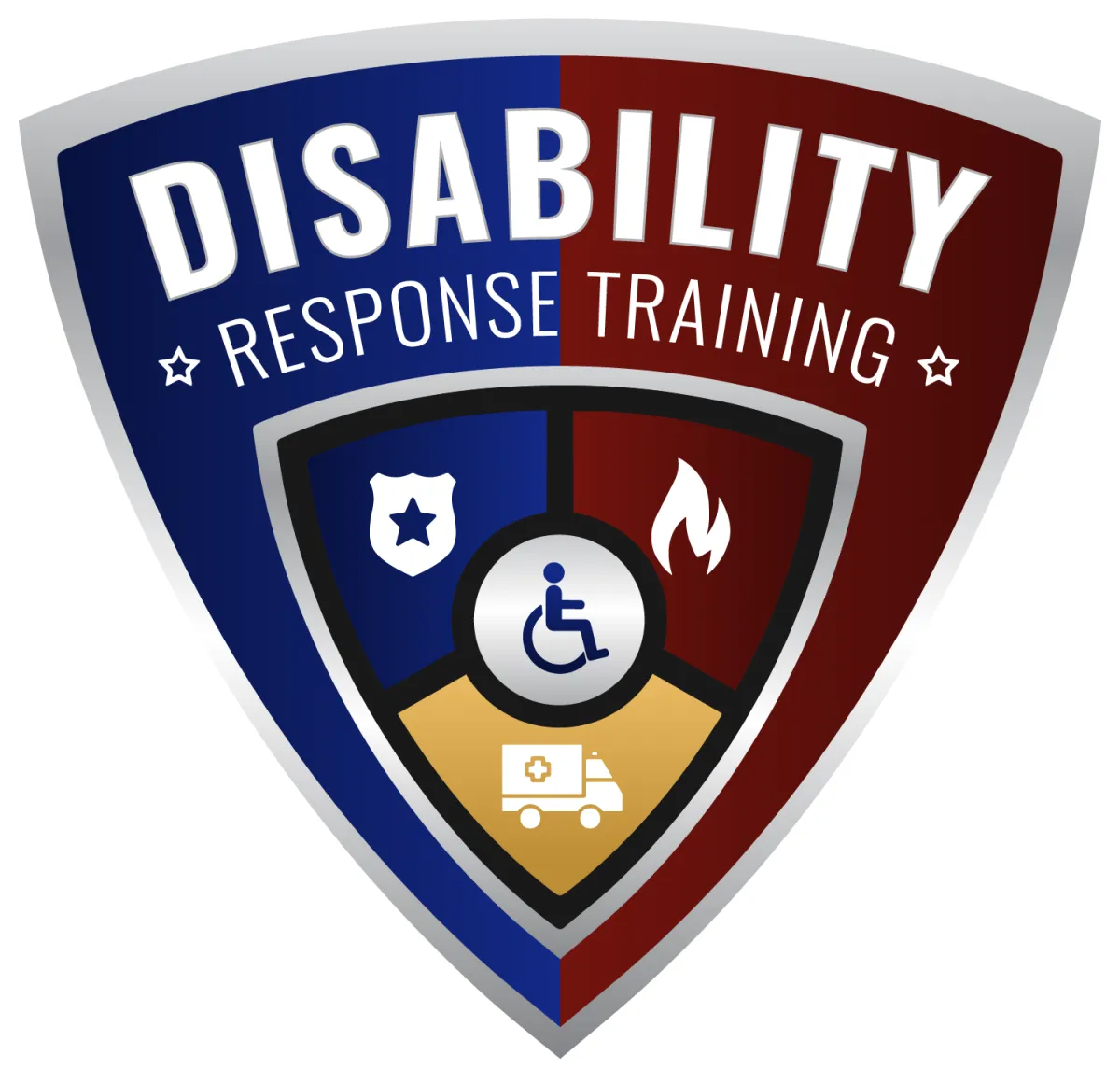See Our Latest Blogs

The Legal Implications of Mishandling Disabled Suspects: What Every Law Enforcement Training Director Must Know
Imagine this: one of your officers responds to a call and encounters a suspect in a wheelchair. The individual resists in a moment of fear, confusion, or rage. Your officer—untrained in how to successfully interact with a physically disabled suspects (PDS)—attempts to restrain them using standard tactics and within seconds, . . . the situation escalates! Injuries occur, bystanders panic, and what could have been a routine intervention turns into a legal and reputational nightmare for both your officer and your department.
This scenario isn’t hypothetical. Across the United States, officers have faced lawsuits, disciplinary actions, and career-altering consequences simply because they weren’t prepared to safely and legally interact with physically disabled suspects.
As a Training Director, understanding these legal implications isn’t just a matter of compliance—it’s a matter of protecting your officers, your department, and the communities you serve.
Why Mishandling Physically Disabled People (PDP) Matters
Physically disabled people are often disadvantaged when it comes to strength, balance, and mobility and may rely on both other people and mobility equipment, like manual wheelchairs, power chairs, electric scooters, crutches, or walkers to navigate the world. Mishandling these individuals can result in:
Severe physical injury to the suspect.
Increased risk of officer injury due to improper handling.
Civil lawsuits and federal investigations for ADA violations.
Damage to community trust and public perception.
Every law enforcement training director knows that liability isn’t theoretical—it’s real, costly, and preventable with proper training.
Legal Framework: Laws Every Officer Must Understand
Americans with Disabilities Act (ADA)
Under Title II of the ADA, public entities—including police departments—must ensure that people with disabilities are not subjected to discrimination or excessive force due to their disability. Mishandling a PDS during an arrest, search, or transport may be considered discrimination under federal law.
Source: ADA Title II: https://www.ada.gov/regs2010/titleII_2010/titleII_2010_regulations.htm
Department of Justice (DOJ) Guidance
The DOJ has issued guidance emphasizing that police officers must accommodate the needs of physically disabled individuals, including:
Avoiding unnecessary use-of-force.
Using proper techniques for transporting mobility devices.
Providing accessible communication methods when needed.
Source: DOJ Guidance on Police Interactions with Persons with Disabilities: https://www.ada.gov/doj-guidance-police.htm
Court Cases
Jones v. City of Los Angeles (2007): an officer mishandled a man with a wheelchair, which resulted in an injury to the PDS. The city faced a settlement exceeding $500,000 for ADA violations.
Doe v. Township of Wall (2013): a motorized wheelchair user was restrained incorrectly, causing severe injury. DOJ intervention highlighted inadequate officer training.
These two cases—out of thousands of incidents involving disabled individuals—underscore that a lack of training will not stand-up as defensible; officers and departments, alike, will be held accountable.
Real-World Scenarios: Lessons from the Field
Scenario 1: The Manual Wheelchair Misstep
During a routine traffic stop, officers attempted to lift a paraplegic suspect out of a manual wheelchair without proper training. The wheelchair tipped, the suspect suffered a broken arm, and the department faced a costly settlement. This scenario is discussed in training circles nationally as an example of avoidable mishandling.
Scenario 2: Power Chair Collision
In a crowded public area, officers tried to restrain a suspect in a power chair. Ignorance of device mechanics caused the chair to accelerate unexpectedly, injuring both the suspect and an officer. This incident sparked internal review and DOJ oversight.
Scenario 3: Scooters and Improper Searches
An officer attempted a routine pat-down of a scooter user who was non-compliant due to mobility constraints. Lack of awareness of device structure and stability led to the suspect falling. The family filed a civil suit citing negligence and ADA violations.
Each scenario reinforces one critical lesson: a lack of training leads to unintended—and avoidable—results.
Negative Outcomes for Departments, Officers, and Victims
Simply put: the consequences of mishandling physically disabled individuals and their equipment extends beyond immediate bodily injury:
Officers: Face disciplinary action, suspension, or career-altering—sometimes career-ending—lawsuits.
Departments: Risk federal investigations, consent decrees, civil settlements, and public distrust.
Victims and Families: Suffer injury, emotional trauma, and loss of confidence in law enforcement.
For example, DOJ settlements often include costly remedial measures, officer retraining, and long-term monitoring of compliance.
Source: DOJ ADA Settlement Examples: https://www.ada.gov/ada_settlements.htm
Training as Prevention: Transforming Liabilities into Defensibilities
The solution is clear: comprehensive, scenario-based Disability Response TrainingTM. DRT equips officers to:
Safely interact with physically disabled people and their mobility devices.
De-escalate situations without unnecessary force.
Reduce departmental liability and community tension.
Utilize insight and appropriate skills to best resolve challenging situations.
DRT isn’t just compliance—it’s a career-saving, community-protecting investment. Officers trained properly respond faster, safer, and smarter, while protecting their department from costly mistakes.
Final Thoughts: A Call to Action for Training Directors
Every law enforcement training director has a responsibility: prepare officers to meet modern policing challenges safely, effectively, and legally. Mishandling physically disabled suspects isn’t just a “mistake”—it’s a preventable risk with real consequences.
By implementing structured, hands-on Disability Response Training, your department can:
Protect officers from injury and liability.
Reduce the risk of lawsuits and federal intervention.
Enhance public trust through professional, empathetic policing.
Empower officers to handle complex encounters with confidence.
Don’t wait for a preventable incident to make training mandatory. Lead the change now—because preparedness isn’t just good policing, it’s the law.
Empowering Law Enforcement to Successfully Interact with Physically Disabled Suspects
Essential training to prepare your officers for any situation involving a physically disabled person—boosting individual safety and reinforcing public trust.
Contact:
© 2025 Disability Response Training
All Rights Reserved - Privacy Policy

